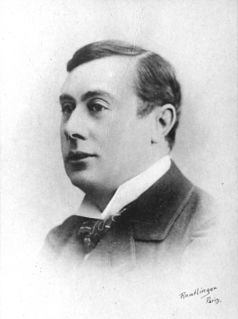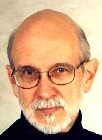| Look up naturalist in Wiktionary, the free dictionary. |
Naturalist may refer to:
- Practitioner of naturalistic observation or natural history
- Conservation movement member
- Advocate of naturalism (philosophy)
- Naturalist (book), autobiography
| Look up naturalist in Wiktionary, the free dictionary. |
Naturalist may refer to:
| This disambiguation page lists articles associated with the title Naturalist. If an internal link led you here, you may wish to change the link to point directly to the intended article. |
Ethical naturalism is the meta-ethical view which claims that:

An environmentalist is a person who is concerned with and/or advocates for the protection of the environment. An environmentalist can be considered a supporter of the goals of the environmental movement, "a political and ethical movement that seeks to improve and protect the quality of the natural environment through changes to environmentally harmful human activities". An environmentalist is engaged in or believes in the philosophy of environmentalism.
Naturalism is a literary movement beginning in the late nineteenth century, similar to literary realism in its rejection of Romanticism, but distinct in its embrace of determinism, detachment, scientific objectivism, and social commentary. The movement largely traces to the theories of French author Émile Zola.

The Brights movement is a social movement whose members refer to themselves as Brights and have a worldview of philosophical naturalism.

André Antoine was a French actor, theatre manager, film director, author, and critic who is considered the father of modern mise en scène in France.

Religious naturalism combines a naturalist worldview with ideals, perceptions, traditions, and values that have been traditionally associated with many religions or religious institutions. "Religious naturalism is a perspective that finds religious meaning in the natural world and rejects the notion of a supernatural realm." The term "religious" in this context is construed in general terms, separate from the traditions, customs, or beliefs of any one of the established religions.
Naturalism may refer to:

19th-century French literature concerns the developments in French literature during a dynamic period in French history that saw the rise of Democracy and the fitful end of Monarchy and Empire. The period covered spans the following political regimes: Napoleon Bonaparte's Consulate (1799–1804) and Empire (1804–1814), the Restoration under Louis XVIII and Charles X (1814–1830), the July Monarchy under Louis Philippe d'Orléans (1830–1848), the Second Republic (1848–1852), the Second Empire under Napoleon III (1852–1871), and the first decades of the Third Republic (1871–1940).
Humanistic naturalism is the branch of philosophical naturalism wherein human beings are best able to control and understand the world through use of the scientific method, combined with the social and ethical values of humanism. Concepts of spirituality, intuition, and metaphysics are considered subjectively valuable only, primarily because they are unfalsifiable, and therefore can never progress beyond the realm of personal opinion. A boundary is not drawn between nature and what lies "beyond" nature; everything is regarded as a result of explainable processes within nature, with nothing lying outside it.
Metaphysical naturalism is a philosophical worldview which holds that there is nothing but natural elements, principles, and relations of the kind studied by the natural sciences. Methodological naturalism is a philosophical basis for science, for which metaphysical naturalism provides only one possible ontological foundation. Broadly, the corresponding theological perspective is religious naturalism or spiritual naturalism. More specifically, metaphysical naturalism rejects the supernatural concepts and explanations that are part of many religions.
Naturism, sometimes called Nudism, is a cultural and political movement advocating social nudity in private and public spaces, and also a lifestyle of living in harmony with nature and others as expressed through social nudity.

Naturalism is a movement in European drama and theatre that developed in the late 19th and early 20th centuries. It refers to theatre that attempts to create an illusion of reality through a range of dramatic and theatrical strategies. Interest in naturalism especially flourished with the French playwrights of the time, but the most successful example is Strindberg's play Miss Julie, which was written with the intention to abide by both his own particular version of naturalism, and also the version described by the French novelist and literary theoretician, Émile Zola.

Jerome A. Stone is an American author, philosopher, and theologian. He is best known for helping to develop the religious movement of Religious Naturalism. Stone is on the Adjunct Faculty of Meadville Lombard Theological School; is Emeritus Professor of Philosophy at William Rainey Harper College; is in Preliminary Fellowship with the Unitarian Universalist Association; and is a member of the Highlands Institute of American Religious and Philosophical Thought (HIARPT) and the Institute on Religion in an Age of Science (IRAS).

Spiritual naturalism, or naturalistic spirituality combines a naturalist approach to spiritual ways of looking at the world. Spiritual naturalism may have first been proposed by Joris-Karl Huysmans in 1895 in his book En Route.
Coming into prominence as a writer during the 1870s, Huysmans quickly established himself among a rising group of writers, the so-called Naturalist school, of whom Émile Zola was the acknowledged head...With Là-bas (1891), a novel which reflected the aesthetics of the spiritualist revival and the contemporary interest in the occult, Huysmans formulated for the first time an aesthetic theory which sought to synthesize the mundane and the transcendent: "spiritual Naturalism".

Realism, sometimes called naturalism, in the arts is generally the attempt to represent subject matter truthfully, without artificiality and avoiding artistic conventions, or implausible, exotic, and supernatural elements. Realism has been prevalent in the arts at many periods, and can be in large part a matter of technique and training, and the avoidance of stylization.
Willem Bernard "Wim" Drees is a Dutch philosopher. He is the editor-in-chief of Zygon, Journal of Religion & Science. As of 1 November 2014 he is a humanities professor of philosophy at Tilburg University in the Netherlands.
Dialectical naturalism is a term coined by American philosopher Murray Bookchin to describe the philosophical underpinnings of the political program of social ecology. Dialectical naturalism explores the complex interrelationship between social problems, and the direct consequences they have on the ecological impact of human society. Bookchin offered dialectical naturalism as a contrast to what he saw as the "empyrean, basically antinaturalistic dialectical idealism" of Hegel, and "the wooden, often scientistic dialectical materialism of orthodox Marxists".

Verismo was an Italian literary movement which peaked between approximately 1875 and the early 1900s. Giovanni Verga and Luigi Capuana were its main exponents and the authors of a verismo manifesto. Capuana published the novel Giacinta, generally regarded as the "manifesto" of Italian verismo. Unlike French naturalism, which was based on positivistic ideals, Verga and Capuana rejected claims of the scientific nature and social usefulness of the movement.
Liberal naturalism is a heterodox form of metaphysical naturalism that lies in the conceptual space between scientific naturalism and supernaturalism. It allows that one can respect the explanations and results of the successful sciences without supposing that the sciences are our only resource for understanding humanity and our dealings with the world and each other.
In philosophy, naturalism is the "idea or belief that only natural laws and forces operate in the world." Adherents of naturalism assert that natural laws are the rules that govern the structure and behavior of the natural universe, that the changing universe at every stage is a product of these laws.
Naturalism is not so much a special system as a point of view or tendency common to a number of philosophical and religious systems; not so much a well-defined set of positive and negative doctrines as an attitude or spirit pervading and influencing many doctrines. As the name implies, this tendency consists essentially in looking upon nature as the one original and fundamental source of all that exists, and in attempting to explain everything in terms of nature. Either the limits of nature are also the limits of existing reality, or at least the first cause, if its existence is found necessary, has nothing to do with the working of natural agencies. All events, therefore, find their adequate explanation within nature itself. But, as the terms nature and natural are themselves used in more than one sense, the term naturalism is also far from having one fixed meaning.